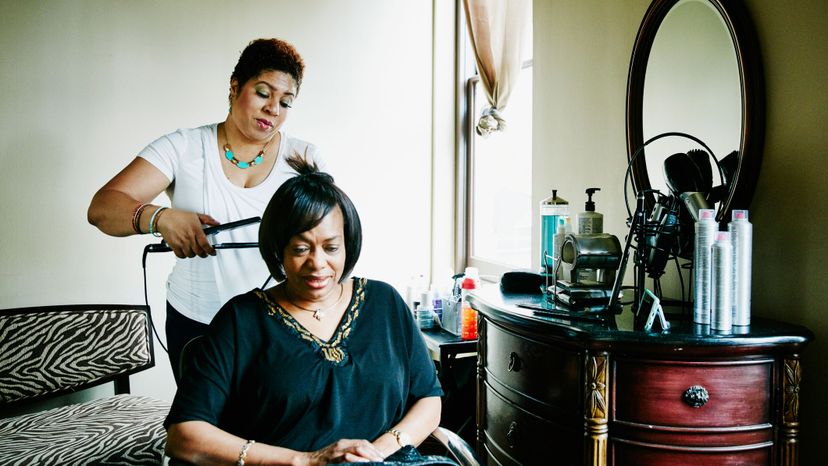 “A new study found many hazardous chemicals in hair care products for black women, and they were not labeled on the containers. Thomas Barwick/Getty Images
“A new study found many hazardous chemicals in hair care products for black women, and they were not labeled on the containers. Thomas Barwick/Getty Images
Hair care products marketed to black women could be putting them at risk for a host of health issues, like cancer, reproductive disorders, asthma and birth defects. So say scientists at the Silent Spring Institute in Newton, Massachusetts. They tested 18 hair products in six categories such as the anti-frizz/polisher, relaxer and root stimulator categories. Using gas chromatography/mass spectrometry (which can determine chemicals in compounds), the team checked whether the 18 products contained any of 66 endocrine disrupters connected with the ailments mentioned earlier. The testing revealed 45 disrupters, with each product containing from six to 30 of the targeted chemicals.
"Chemicals in hair products, and beauty products in general, are mostly untested and largely unregulated," says lead author Dr. Jessica Helm in a press release. "This study is a first step toward uncovering what harmful substances are in products frequently used by black women, so we can better understand what’s driving some of the health issues they’re facing."
African-American women are known to go through puberty at younger ages than white women, and they have higher rates of pre-term birth, uterine fibroids and infertility than other ethnic groups. Previous studies have suggested that hair care products could play a role. While the researchers say that they did not find "authoritative assessments of the health risk associated with these chemicals in personal care products or from dermal exposure in general," they do say that this is an area where more research is needed.
Among the endocrine disrupters found in the products were diethyl phthalate, parabens, cyclosiloxanes and nonylphenols. Eleven products contained seven chemicals prohibited in the European Union or regulated under California’s Proposition 65, and hair relaxers for children had some of the highest levels of these prohibited chemicals. Incredibly, product labels failed to list a whopping 84 percent of the chemicals identified during testing. Although many of the chemicals are also found in products geared to other ethnicities, the amounts are often higher in products marketed to black women. The study was published in the journal Environmental Research in April 2018.
"Given the exposure and endocrine-mediated health disparities experienced by black women, new research and regulatory activities should consider the effects of ethnic differences in product use on exposures and health," the authors note in the paper, adding that precautionary measures should be taken to reduce risk. These include lowering the amounts of endocrine-disrupting chemicals in the products, as well as improving labeling practices, so that women can make informed choices.
Now That’s Interesting
Regardless of hair type, make sure to confirm that certain chemicals aren’t present in your hair color. Resorcinol, toluene, lead acetate, ethanolamines and p-phenlyenediamine are of particular concern, according to the Campaign for Safe Cosmetics.

